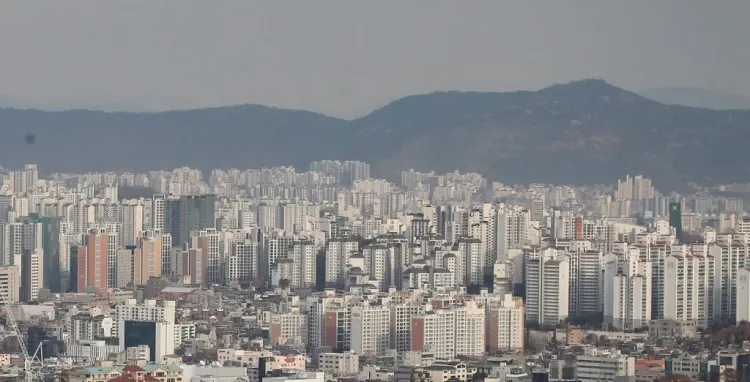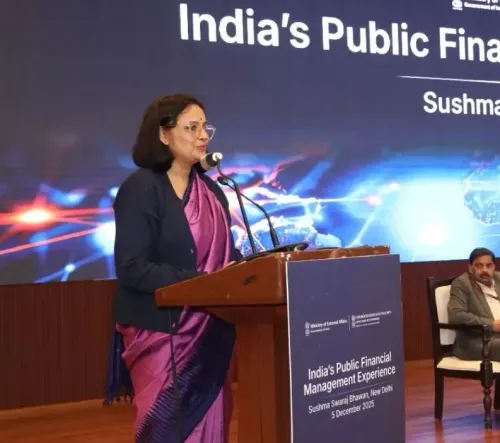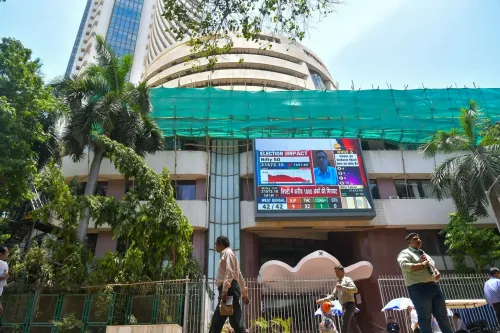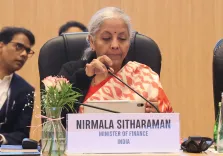Is S. Korea's Entire Seoul Now a Speculative Zone?

Synopsis
Key Takeaways
- All 21 districts in Seoul are now speculative zones.
- Tighter lending rules will be enforced to control housing prices.
- The government may consider tax revisions related to real estate.
- Authorities will intensify measures against illegal housing transactions.
- Market analysts expect a slowdown in housing transactions.
Seoul, Oct 15 (NationPress) The government announced on Wednesday that all 21 remaining districts in Seoul have been designated as speculative zones, implementing stricter lending regulations to combat the swiftly escalating housing prices in the capital. This initiative may also necessitate future tax adjustments.
This decision was made during a ministerial gathering at the government complex in Seoul, which included Finance Minister Koo Yun-cheol, Land Minister Kim Yun-duk, and other significant financial authorities, as reported by Yonhap news agency.
The addition of these speculative zones expands upon the existing four districts—Gangnam, Seocho, Songpa, and Yongsan—bringing the total to 25 districts in Seoul under this classification.
Additionally, twelve cities in Gyeonggi Province, such as Gwacheon, Yongin, Uiwang, and Hanam, have also been newly classified as regulatory zones.
The changes will take effect on Thursday and represent the third series of housing market stabilization measures introduced by the new administration since June.
Housing prices in Seoul have surged significantly in recent months, particularly in areas surrounding the Han River, leading to heightened speculative demand and a swift increase in prices. This situation has become a critical challenge for the new government led by President Lee Jae Myung.
"We must not miss this golden opportunity to stabilize the housing market," stated the land minister. "The government will allocate all available resources to prioritize housing market stabilization."
Furthermore, regulations on mortgage loans will be intensified, with a mortgage loan limit of 600 million won (approximately US$420,688) for homes priced at 1.5 billion won or less, 400 million won for homes valued between 1.5 billion won and 2.5 billion won, and 200 million won for homes exceeding 2.5 billion won.
The government has also suggested the potential for increasing real estate-related taxes to "redirect capital toward productive sectors."
Specific amendments to housing tax regulations will be determined after assessing their market impact and tax fairness.
This proposal arises even as Lee previously emphasized during his campaign that his administration would avoid tax increases as a primary tool for stabilizing the housing market.
During a parliamentary audit on Tuesday, Koo clarified that the president's earlier statements about not using tax hikes should be understood as an intention to consider taxation only as a "last resort," rather than completely ruling it out.
Authorities will also enhance efforts to combat illegal housing transactions, establishing a real estate crime oversight body under the prime minister's office to directly conduct investigations.
Separately, the land ministry plans to initiate targeted investigations into false transaction price reporting, while the National Tax Service will closely track transactions involving luxury homes worth over 3 billion won.
The National Police Agency is also set to launch a special crackdown on real estate offenses, focusing on price manipulation, illegal subscriptions, and corruption linked to reconstruction and redevelopment projects.
Market analysts anticipate that these new measures may lead to a decrease in transactions and a slowdown in housing markets in Seoul's outer districts and adjacent areas in Gyeonggi Province.
"Currently, these announced measures are expected to halt the spread of rising housing prices, not only throughout Seoul but also in the southern capital region, exerting downward pressure on prices in those locales," said Park Won-gap, a senior real estate analyst at KB Kookmin Bank.










